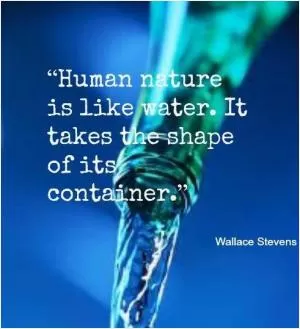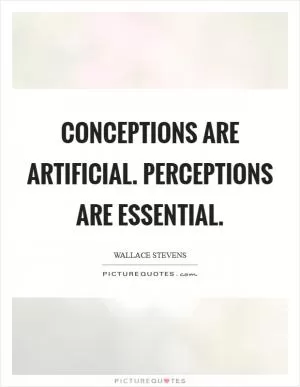Everything is complicated; if that were not so, life and poetry and everything else would be a bore

Everything is complicated; if that were not so, life and poetry and everything else would be a bore
Wallace Stevens, a renowned American poet, is known for his complex and intricate poetry that delves into the complexities of life, language, and perception. His work often explores the idea that everything is inherently complicated, and that this complexity is what makes life and poetry so interesting and engaging.In his poem "Thirteen Ways of Looking at a Blackbird," Stevens presents the idea that the world is multifaceted and can be viewed from multiple perspectives. Each of the thirteen stanzas offers a different interpretation of the blackbird, highlighting the complexity of perception and the ever-changing nature of reality. This complexity is what makes the poem so compelling and thought-provoking, as it challenges the reader to consider the many layers of meaning that can be found in even the simplest of things.
Stevens also explores the idea of complexity in his poem "The Snow Man," where he suggests that true perception requires a willingness to embrace the inherent ambiguity and uncertainty of the world. The snow man, in this poem, is a symbol of the detached observer who is able to see beyond the surface of things and appreciate the intricate beauty of the world. Stevens suggests that it is this ability to embrace complexity and ambiguity that allows us to truly engage with life and poetry in a meaningful way.
For Stevens, the idea that everything is complicated is not a source of frustration or confusion, but rather a source of inspiration and creativity. He believed that it is through grappling with the complexities of life and language that we are able to uncover deeper truths and insights about the world around us. In this sense, complexity is not something to be avoided or simplified, but rather something to be embraced and celebrated.












 Friendship Quotes
Friendship Quotes Love Quotes
Love Quotes Life Quotes
Life Quotes Funny Quotes
Funny Quotes Motivational Quotes
Motivational Quotes Inspirational Quotes
Inspirational Quotes